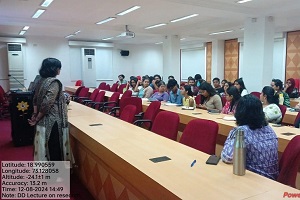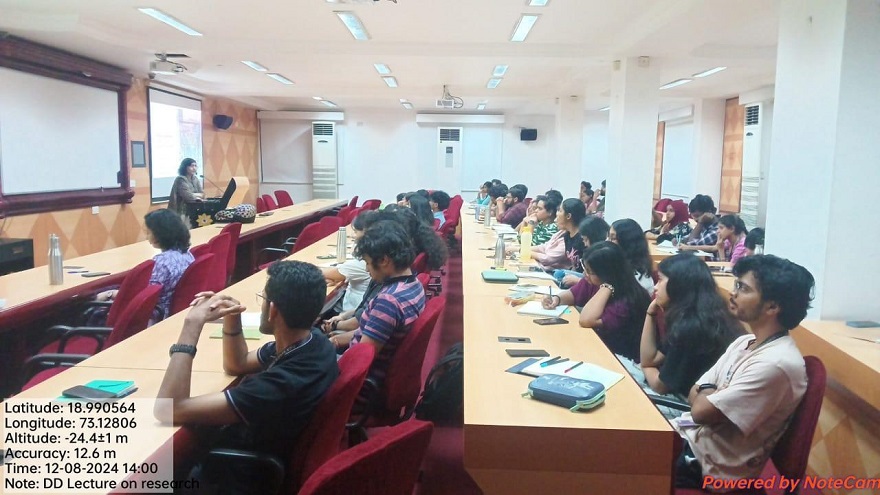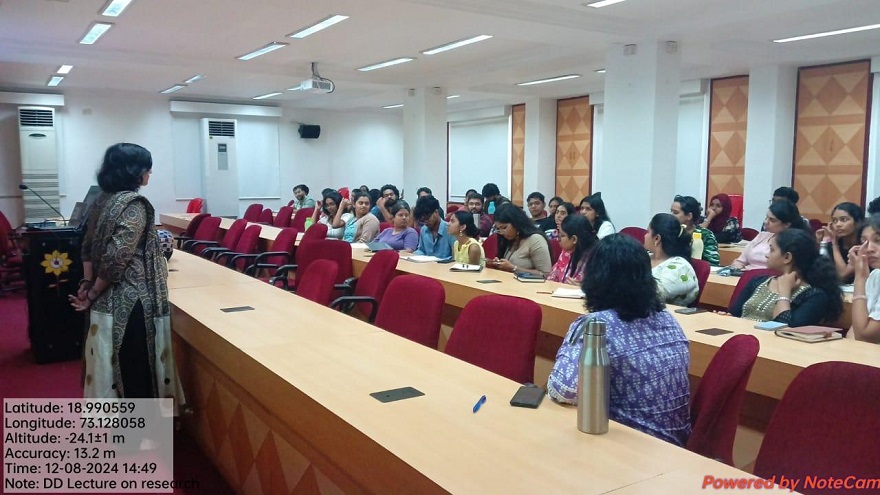| Subject | Design Dissertation |
| Session | 2024-25 |
| Year | 4th and 5th |
| Date | 12th August, 2024 |
| Time | 01:00 p.m. – 3:00 p.m. |
| Venue | Conclave I |
| No. of students | 49 |
| Faculty Coordinator | Prof. Ajita Deodhar |
| Attendees | Students of Semester 7 and 9 |
| Speakers invited | Prof. Ritu Deshmukh |
Pillai College of Architecture organized a Guest Lecture by Prof. Ritu Deshmukh for the 9th semester architecture students on 12th August 2024. The focus of the lecture was on guiding students through the design dissertation process, helping them understand how to effectively incorporate research into their design work.
Prof. Ritu Deshmukh began by discussing how to select a suitable dissertation topic. She highlighted the importance of choosing a topic that not only interests the student but also addresses functional or social challenges. Examples like Inclusive Design were mentioned to show how topics can align with real-world needs, balancing scale, typology, and purpose. She explained the steps involved in incorporating research into the design process, starting with a literature review and followed by data collection, analysis, and application to design. The importance of choosing the right research methods, whether qualitative, quantitative, or mixed was stressed, with a reminder that the design outcome must relate to the objectives set by the research.
The importance of conducting a thorough literature review, both from a theoretical and design perspective, was emphasized. Prof. Deshmukh encouraged students to look at precedents and case studies to understand the historical, cultural, and functional aspects of similar projects. This helps in grounding their designs in real-world contexts. She also used an example of a Winery project to illustrate how research must align with the functional needs of the design.
Prof. Ritu Deshmukh then spoke about the design development process, encouraging students to move from research to ideation. She suggested starting with sketches, narratives, and form explorations, while continuously seeking feedback. This iterative process, she said, helps refine ideas and ensures the design aligns with research findings. She outlined what should be included in the final dissertation, such as site plans, layout plans, sections, elevations, and views, all presented on clear and well-organized sheets. These drawings must directly reflect the research, ensuring the design is both functional and contextually appropriate.
Prof. Ritu Deshmukh also gave practical advice on writing the thesis, and explained dos and don’ts while writing the thesis. She emphasized the need for good time management, advising students to plan their work well in advance to allow for thorough research, design development, and preparation of final presentations.
The session included an engaging discussion with students on their dissertation topics, covering examples like Inclusive Design, New Age Prisons, and Reformatory Centres. Prof. Ritu Deshmukh emphasized the need for a shift in thought processes, encouraging students to address social reform through design. She urged them to think critically and make sure their research guides their design decisions, highlighting the importance of connecting design to real-world challenges.
In conclusion, the lecture provided essential guidance on navigating the dissertation process, from topic selection to final presentation. Prof. Ritu Deshmukh’s insights into balancing research with creative design and managing the various components of a dissertation were highly valuable to the students.



